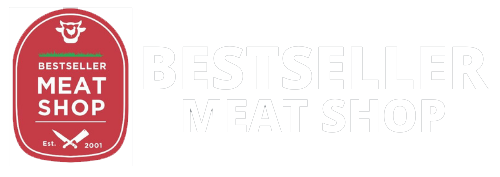This is a time-saving feature for businesses that handle a large volume of transactions on a daily basis. Integrates with more than 750 apps and offers live, in-house bookkeeping add-on. Includes audit trails and easy accountant access; has millions of users so your accountant will likely be familiar with it. Includes tools that help automate the reconciliation process, along with a global search function and customizable dashboard; has a simple layout.
Xero and QuickBooks are two the of most popular accounting software solutions for small businesses looking to keep track of finances. While the two both offer similar features, such as tax management, financial reports, integrated payroll, inventory and file storage, the two are not without their differences. Forbes Advisor direct costs and facilities and administrative costs compared Xero vs. QuickBooks when it comes to the key features, pricing, customer service and reviews to help you decide which is right for your business. NerdWallet’s accounting software ratings favor products that are easy to use, reasonably priced, have a robust feature set and can grow with your business.
- Linking to your actual accounting and CRM data allows you to define rules and methods to create a rolling forecast to better model your business’s progress.
- The features list grows with the monthly subscription cost, and you can bolt-on extra services such as Payroll for a small extra monthly fee.
- Yes, both have a fixed asset manager that allows you to track fixed assets and calculate depreciation.
- The automation also translates into enhanced financial visibility, providing businesses with accurate and up-to-date information for faster decision-making.
For this category, we rank Xero first due to its free 24/7 online customer support across all its plans. QuickBooks’ customers with issues may have to wait for business hours to get a resolution. Yes, both have a fixed asset manager that allows you to track fixed assets and calculate depreciation. Fixed asset accounting is part of all Xero’s plans, while it’s offered only in the most expensive plan of QuickBooks Online—Advanced.
Xero or Quickbooks: Which is Right for You?
Unlike QuickBooks, Xero users do not have any phone support options. To get it, you’ll just need to log in, visit Xero Central, and submit a query. You can then track its progress through a section called “My cases,” which details which specialist is working on it, the current status, and expected response time. Both services do offer an app marketplace, for both in-house mobile apps and integrations or extensions offered by third-party services. Xero offers more integrations overall, but both are very comprehensive. Both accounting softwares are easy to navigate, allowing you to find your required feature from a main dashboard with a sidebar.
- It lists the earliest month first and then moves forward in time.
- Your business probably has a long list of contacts like customers and suppliers.
- For businesses reliant on project-based revenue streams, QuickBooks’ job costing feature becomes an invaluable tool for precise project budgeting and financial success.
- That said, Xero has a lower price point, starting at $13 per month, compared to QuickBooks’ $30 per month starting cost, and Xero offers more integrations than QuickBooks as well.
It includes articles and videos, grouped by the type of QuickBooks product, and further broken down into categories such as ‘Account Management,’ ‘Taxes,’ and ‘Sales and Customers,’ among others. Video training courses, a blog, and a community forum are also available. Neither QuickBooks or Xero offers a permanent free plan, but if that’s what you need, we have a guide to the best free accounting software. Xero keeps things simpler, with just three plans rather than five. Both QuickBooks and Xero offer tax preparation features, and that feature is just one reason why our researchers gave both services a perfect 5/5 for financial reporting.
Project Accounting: Xero Wins
If you didn’t receive an email don’t forgot to check your spam folder, otherwise contact support. Again, if you opt out of the free trial, you’ll get 50% off the base fee for your first three months of service. Sign up to receive more well-researched small business articles and topics in your inbox, personalized for you. Depending on the plan you select, QuickBooks Online’s monthly prices run from $30 for the Simple Start plan to $200 for the Advanced plan. QuickBooks Online and Xero both have a large collection of integrated apps, which should be enough to cover your business automation needs.
Customer support
If you only have Self Assessment to worry about, you can choose a Self-Employed or Simple Start plan for the very low price of £4-6 a month. This all-in-one accounting software is particularly popular with startups and younger business owners, and is known for its clean, uncluttered interface. Both Xero and QuickBooks Online are optimized for small to mid-sized businesses, so large enterprises with more complex requirements may struggle to tick all of their boxes.
About Xero
You can even group by product or service, date created, or amount with QBO. Xero uses AI and machine learning, including HubDoc, to automate workflows, available in all of its pricing plans. Both Xero and QuickBooks Online can be used and synced with online payments processing transactions from different online payment processors.
QuickBooks and Xero are two of the best accounting software options with a range of plans and packages that can work for freelancers, small businesses and large enterprises alike. We researched both tools extensively to help you determine the best one for your company. In this article, we list their core features, pricing, pros and cons, as well as the type of company each bookkeeping tool is suitable for. You can add products, track what you have in stock, see what’s selling, and add item details to invoices.
Maximum Users
Although the best choice for your business will depend on your specific requirements, QBO has a slight edge for many applications. It’s been around longer, is more customizable, and offers a good variety of reporting and other tools. Smooth integration with other business tools and applications is paramount in the modern business landscape.
QuickBooks and Xero are tied in this category because each platform offers features that the other one doesn’t. For instance, QuickBooks Online lets you accept payments but can’t record bills while Xero allows you to enter bills but can’t process online payments. If mobile payment is important to you, QuickBooks’ app might be better. If you often need to record bills and bill payments on the go, Xero’s mobile app might be preferable. Xero is more affordable and scalable than QuickBooks since all subscriptions have unlimited users. If you have a microbusiness and only need to manage and track a few bills and invoices, then you might do well with Xero’s Early plan.



Leave A Comment